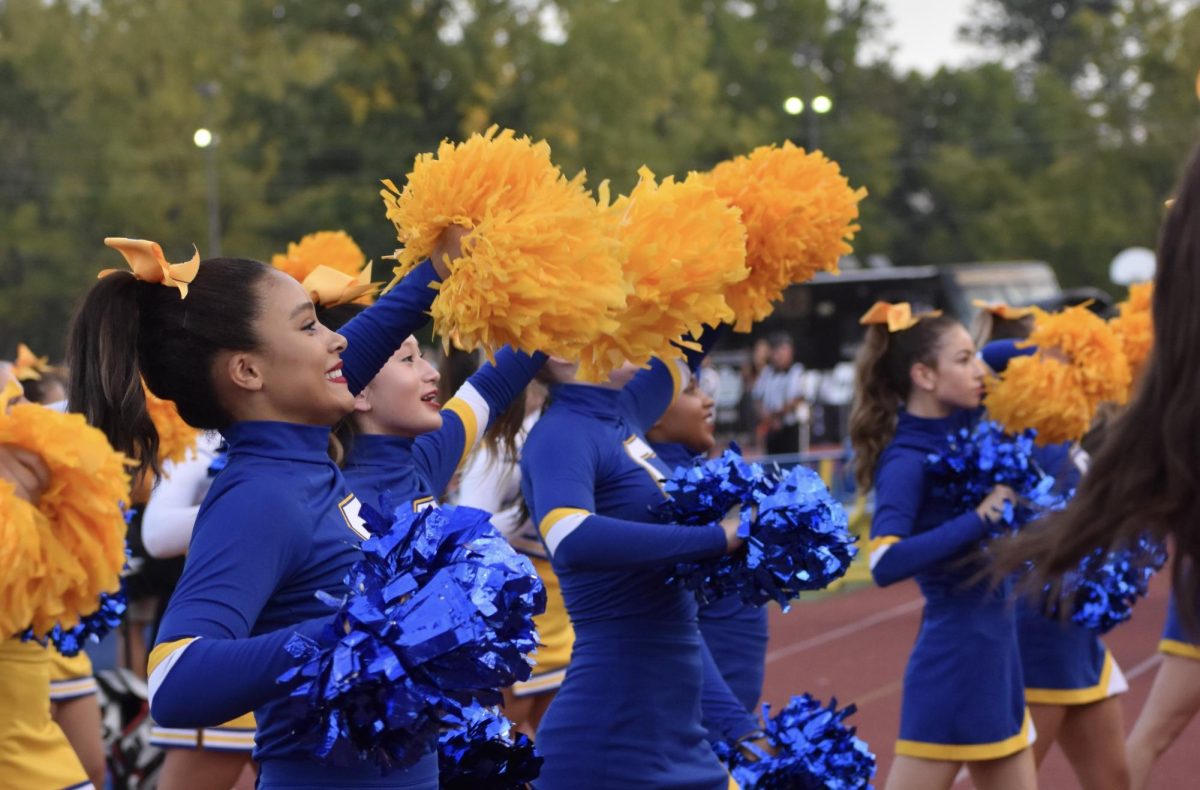According to a USA Today article published on March 17, 2014, the odds of making a perfect bracket for the NCAA Division I Men’s Basketball Tournament are one in 9.2 quintillion. The article also says that one has a better chance of winning the Powerball lottery, whose odds are one in 125 million, three times in a row than creating a perfect bracket.

The phenomenon of creating a perfect bracket became publicized last year during the 2014 tournament when Warren Buffett, the world’s second-most richest man according to Forbes.com, announced that he will give a billion dollars to whoever creates a perfect bracket. Despite the fact that the odds of predicting a perfect bracket are incredibly low, some students such as senior Drew Greene still attempt to fill out a perfect bracket.
Some would fill out their brackets by looking at the match ups of each game while others would simply guess or even flip a coin to help fill out their brackets. Greene, on the other hand, took it one step further by making a formula to help him fill out his bracket.
“I did it because I hadn’t done very well with my brackets for a couple years and I had a lot of time just sitting around from missing school so I figured I’d come up with a better way to try and pick games,” Greene said.
Greene said during the first year of using his formula to pick games, he did really well and ended up around the 98th percentile compared to those who filled out their brackets on ESPN.com. Greene said statistics such as rebounding and efficiency on offense and defense are used in his formula. Greene said these statistics help rank teams on offense and defense no matter what place those teams play at.
“A better way to (pick games) is just to look at stats of teams and factor them in, specifically when you haven’t watched them play a lot,” Greene said.
While his formula helped him in making predictions for the tournament, Greene said he admits that it’s borderline impossible to predict every single game right since there are so many. AP Statistics teacher Matthew Wernke shares the same sentiment.
“There are so many combinations of possible winners among the 65 games and who wins the games is often determined by chance,” Wernke said. “By chance, I’m not saying the winner is determined by a coin flip or die roll. Instead consider taking any two teams that are equally matched. If they play 10 times, the outcome is not going to be the same. Differences in which player is playing well, who’s feeling good, where the game is played, et cetera will all affect the outcome.”
In addition, upsets play a large role in complicating the process of making a perfect bracket. According to Wernke, there are numerous different possibilities in how the bracket can ultimately end up and that there is no guaranteed way to choose when upsets will occur. However, Wernke did say upsets are bound to be predicted correctly due to the fact that so many people are filling out brackets.
“I believe most people like to choose upsets because they seem to occur so often in the tournament and it makes you look knowledgeable to say you ‘predicted’ the upset like you are smarter than everyone else,” Wernke said. “The problem is that if you decide to choose three out of the 20 teams seeded 11 to 15 to win in round one, then that is 1140 different possibilities alone. With so many options it is unlikely to pick all the upsets.”
Although both Greene and Wernke said making a perfect bracket is really difficult, there are steps that one can take to increase his or her chances to create a strong bracket.
“It’s nearly impossible to predict all those games right,” Greene said. “The numbers can tell you a lot for the tournament.”
- HILITE NEWS HAS BEEN NAMED A NATIONAL SCHOLASTIC PRESS ASSOCIATION ONLINE PACEMAKER FINALIST
- HILITE NEWS HAS BEEN NAMED THE HOOSIER STAR WINNER FOR NEWS SITE
- HILITE NEWS HAS BEEN NAMED A COLUMBIA SCHOLASTIC PRESS ASSOCIATION GOLD CROWN WINNER


































![British royalty are American celebrities [opinion]](https://hilite.org/wp-content/uploads/2024/03/Screenshot-2024-03-24-1.44.57-PM.png)


















![Review: “Suits” is a perfect blend of legal drama and humor [MUSE]](https://hilite.org/wp-content/uploads/2024/04/unnamed-1.png)
![Chelsea Meng on her instagram-run bracelet shop [Biz Buzz]](https://hilite.org/wp-content/uploads/2024/04/IMG_2446-1200x838.jpg)
![Review: Quiet on Set: The Dark Side of Kids TV is the long awaited exposé of pedophilia within the children’s entertainment industry [MUSE]](https://hilite.org/wp-content/uploads/2024/04/unnamed.jpg)
![Review: “The Iron Claw” cannot get enough praise [MUSE]](https://hilite.org/wp-content/uploads/2024/04/unnamed.png)
![Review: “The Bear” sets an unbelievably high bar for future comedy shows [MUSE]](https://hilite.org/wp-content/uploads/2024/03/unnamed.png)
![Review in Print: Maripaz Villar brings a delightfully unique style to the world of WEBTOON [MUSE]](https://hilite.org/wp-content/uploads/2023/12/maripazcover-1200x960.jpg)
![Review: “The Sword of Kaigen” is a masterpiece [MUSE]](https://hilite.org/wp-content/uploads/2023/11/Screenshot-2023-11-26-201051.png)
![Review: Gateron Oil Kings, great linear switches, okay price [MUSE]](https://hilite.org/wp-content/uploads/2023/11/Screenshot-2023-11-26-200553.png)
![Review: “A Haunting in Venice” is a significant improvement from other Agatha Christie adaptations [MUSE]](https://hilite.org/wp-content/uploads/2023/11/e7ee2938a6d422669771bce6d8088521.jpg)
![Review: A Thanksgiving story from elementary school, still just as interesting [MUSE]](https://hilite.org/wp-content/uploads/2023/11/Screenshot-2023-11-26-195514-987x1200.png)
![Review: When I Fly Towards You, cute, uplifting youth drama [MUSE]](https://hilite.org/wp-content/uploads/2023/09/When-I-Fly-Towards-You-Chinese-drama.png)
![Postcards from Muse: Hawaii Travel Diary [MUSE]](https://hilite.org/wp-content/uploads/2023/09/My-project-1-1200x1200.jpg)
![Review: Ladybug & Cat Noir: The Movie, departure from original show [MUSE]](https://hilite.org/wp-content/uploads/2023/09/Ladybug__Cat_Noir_-_The_Movie_poster.jpg)
![Review in Print: Hidden Love is the cute, uplifting drama everyone needs [MUSE]](https://hilite.org/wp-content/uploads/2023/09/hiddenlovecover-e1693597208225-1030x1200.png)
![Review in Print: Heartstopper is the heartwarming queer romance we all need [MUSE]](https://hilite.org/wp-content/uploads/2023/08/museheartstoppercover-1200x654.png)






















![Review: Ladybug & Cat Noir: The Movie, departure from original show [MUSE]](https://hilite.org/wp-content/uploads/2023/09/Ladybug__Cat_Noir_-_The_Movie_poster-221x300.jpg)

![Review: Next in Fashion season two survives changes, becomes a valuable pop culture artifact [MUSE]](https://hilite.org/wp-content/uploads/2023/03/Screen-Shot-2023-03-09-at-11.05.05-AM-300x214.png)
![Review: Is The Stormlight Archive worth it? [MUSE]](https://hilite.org/wp-content/uploads/2023/10/unnamed-1-184x300.png)




